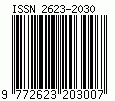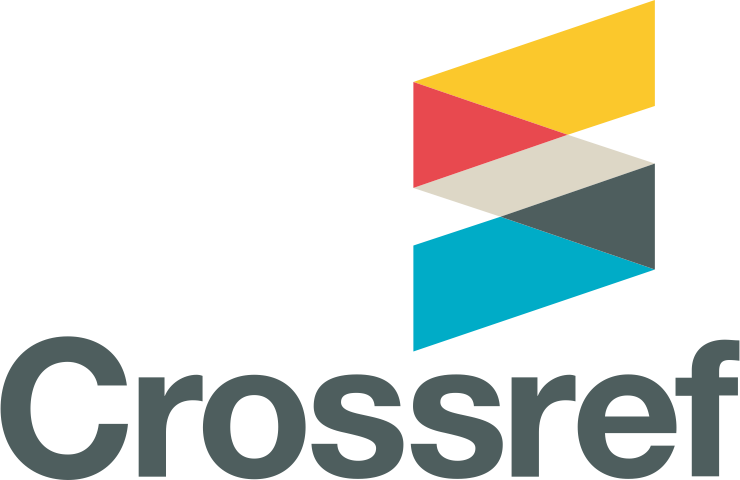EVALUASI PELAKSANAAN INERT GAS SYSTEM (IGS) PADA KAPAL TANKER (Studi Kasus Di Kapal MT. Winson No.5 Milik Perusahaan Winson Oil Singapore)
DOI:
https://doi.org/10.33556/jstm.v21i2.276Abstract
Inert Gas System adalah suatu sistem dengan memasukan gas inert atau gas lembam yang biasanya di dapat dari gas buang kemudian di masukan ke dalam tanki muatan untuk mendesak udara atau mengurangi kadar oksigen dari dalam tangki, dengan tujuan mencegah kebakaran atau ledakan di dalam tanki. Tujuan penelitian ini adalah untuk mengevaluasi pelaksanaan Inert Gas System pada kapal tanker baik dalam perawatan dan pengoperasian oleh crew kapal MT. Winson No.5 milik Perusahaan Winson Oil Singapore. Penelitian ini menggunakan metode deskriptif analitik dengan jenis konten pendekatan kualitatif. Cara pengumpulan data melalui metode observasi, metode interview, metode dokumentasi dan studi pustaka. Dari hasil penelitian menunjukkan bahwa proses pelaksanaan Inert Gas System di kapal MT. Winson No.5 sudah berjalan dengan baik sesuai dengan manual book, hal ini dapat mengurangi resiko-resiko yang dihasilkan pada saat pengoperasian bongkar muat yaitu bahaya-bahaya kebakaran, ledakan dan kerusakan pada muatan.
Kata kunci : Inert Gas System, Kapal Tanker, Kapal MT. Winson No.5
References
Achmadi, A. & N. (2011) ‘Teori Metodologi Penelitian’, Teori Metodologi Penelitian.
Adrián, M. C. and González, J. A. (2015) ‘Inert Gas production: N2 plant vs conventional plant’, Journal of Maritime Research.
Badan Diklat Perhubungan (2000) ‘Inert Gas System, Oil Tanker Training Modul 3’, Badan Diklat Perhubungan, Jakarta.
De Vos, D., Duddy, M. and Bronneburg, J. (2007) ‘The evolution of inert-gas systems on SBM FPSOs: The problem of venting and a straightforward solution’, in SPE Projects, Facilities and Construction. doi: 10.2118/111234-pa.
Hasanah, H. (2017) ‘Teknik-Teknik Observasi (Sebuah Alternatif Metode Pengumpulan Data Kualitatif Ilmu-ilmu Sosial)’, At-Taqaddum. doi: 10.21580/at.v8i1.1163.
IMO (2001) ‘International Convention for the Safety of Life at Sea (SOLAS) 1974 consolidation 2001’, IMO, LONDON.
International Maritime Organization (IMO) (1990) ‘Innert Gas System’, third Editition: IMO, LONDON.
Julian, M. (2000) ‘MARPOL 73/78: the International Convention for the Prevention of Pollution from Ships’, Maritime Studies. doi: 10.1080/07266472.2000.10878605.
Kashiwa Heavy Industries (2011) ‘Inert Gas System, Intruction Manual Book MT.Galunggung’, Kashiwa Heavy Industries, Japan.
Marpol 73/78 Convention Chapter I Regulation 1 (1998) Marpol 73/78 Convention Chapter I Regulation 1, Regulation.
Melfianora (2019) ‘Penulisan Karya Tulis Ilmiah Dengan Studi Literatur’, Open Science Framework.
Oil Companies International Marine Forum (2017) ‘Inert Gas Systems’, OCIMF, London(United Kingdom), pp. 1–12.
Sudarsono, B. (2017) ‘Memahami Dokumentasi’, Acarya Pustaka. doi: 10.23887/ap.v3i1.12735.
Sugiyono, P. D. (2016) metode penelitian kuantitatif, kualitatif,dan R&D, Alfabeta, cv.
Susilowati, S. E. (2015) ‘Inert Gas Sistem Kapal Motor Tanker GANDINI’, 1(September), pp. 1–2.
Downloads
Published
Issue
Section
License
Authors who publish with this journal agree to the following terms:Authors retain copyright and grant the journal right of first publication with the work simultaneously licensed under a Creative Commons Attribution License that allows others to share the work with an acknowledgement of the work's authorship and initial publication in this journal.
Authors are able to enter into separate, additional contractual arrangements for the non-exclusive distribution of the journal's published version of the work (e.g., post it to an institutional repository or publish it in a book), with an acknowledgement of its initial publication in this journal.
Authors are permitted and encouraged to post their work online (e.g., in institutional repositories or on their website) prior to and during the submission process, as it can lead to productive exchanges, as well as earlier and greater citation of published work (See The Effect of Open Access).







